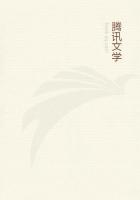Meniere's disease is a disease probably of the semicircular canals, characterized by nausea, vomiting, vertigo, deafness, tinnitus aurium, and various other phenomena. It is also called aural or auditory vertigo. The salient symptom is vertigo, and this varies somewhat in degree according to the portions of the ear affected. If the disease is in the labyrinth, the patient is supposed to stagger to one side, and the vertigo is paroxysmal, varying to such a degree as to cause ****** reeling, or falling as if shot. Gray reports the history of a patient with this sensational record: He had been a peasant in Ireland, and one day crossing one of the wide moors in a dog-cart, he was suddenly, as he thought, struck a violent blow from behind, so that he believed that he lost consciousness for some time. At all events, when he was able to get up he found his horse and cart some distance off, and, of course, not a soul in sight. Under the belief that he had been struck by some enemy he went quietly home and said nothing about it. Some time afterward, however, in crossing another lonely place he had a similar experience, and as he came to the conclusion that nobody could have been near him, he made up his mind that it was some malevolent stroke of the devil and he consulted a priest who agreed with him in his belief, and gave him an amulet to wear. A series of similar attacks occurred and puzzled as to whether there was some diabolical agency at work, or whether he was the victim of some conspiracy, he emigrated to America; for several months he had no attacks. A new paroxy** occurring he consulted Gray, who found indubitable evidence of labyrinthine disease. The paroxysms of this disease are usually accompanied by nausea and vomiting, and on account of the paleness of the face, and the cold, clammy perspiration, attacks have frequently been mistaken for apoplexy.
In disease of the middle ear the attacks are continuous rather than paroxysmal. If the disease is in the middle or internal ears, loud noises are generally heard, but if the disease is in the external ear, the noises are generally absent, and the vertigo of less degree but continuous. The prognosis varies with the location of the disease, but is always serious.
Human rumination has been known for many years. Bartholinus, Paullinus, Blanchard, Bonet, the Ephemerides, Fabricius Hildanus, Horstius, Morgagni, Peyer, Rhodius, Vogel, Salmuth, Percy, Laurent, and others describe it. Fabricius d'Aquapendente personally knew a victim of rumination, or, as it is generally called, merycism. The dissection by Bartholinus of a merycol showed nothing extraordinary in the cadaver. Winthier knew a Swede of thirty-five, in Germany, apparently healthy, but who was obliged when leaving the table to retire to some remote place where he might eject his food into his mouth again, saying that it gave him the sensation of sweetest honey. The patient related that from his infancy he had been the subject of acid eructations, and at the age of thirty he commenced rumination as a means of relief. To those who are interested in the older records of these cases Percy and Laurent offer the descriptions of a number of cases.
In a recent discussion before the American Neurological Association Hammond defined merycism as the functions of remastication and rumination in the human subject. He referred to several cases, among them that of the distinguished physiologist, Brown-Sequard, who acquired the habit as a result of experiments performed upon himself. Hammond reported a case of a young man who was the subject of merycism, and whose mental condition was also impaired. No special treatment was undertaken, but the patient was trephined, with the purpose of improving his mental condition. There were no unusual features connected with the operation, but it was noticed that there were no ruminations with the meals he took until the fifth day, when a slight rumination occurred. Eight days later a similar button was removed from the corresponding side of the left skull, and from that time (about six months) to the time of report, there had been no regurgitation. Whether the cure of the merycism in this case was directly due to the operations on the cranium, or the result of the mental improvement, is a question for discussion. Hammond added that, when acquired, merycism was almost invariably the result of over-eating and loading the esophagus, or the result of fast eating.
In remarks upon Hammond's paper Knapp said that two cases had come to his knowledge, both in physicians, but one of them he knew of only by hearsay. The other man, now over thirty, had regurgitated his food from early childhood, and he did not know that he had anything very unusual the matter with him until he began some investigations upon the functions and diseases of the stomach. This man was not nervous, and was certainly not an idiot. He had done active work as a physician, and called himself in perfect health. He was something of an epicure, and never suffered from indigestion. After a hearty meal the regurgitation was more marked. Food had been regurgitated, tasting as good as when first eaten, several hours after the eating. If he attempted to check the regurgitation he sometimes had a slight feeling of fulness in the stomach. Lloyd said that these cases were forms of neuroses, and were types of hysteric vomiting. There was no gustatory satisfaction connected with any form of hysteric vomiting that he had seen. In some of these cases of hysteric vomiting the food does not appear to enter the stomach, but is rejected by a sort of spasm of the esophagus. This has been called "esophagismus," and is apparently closely allied to this neurosis, which some have called "merycism." The President of the Association said that this would seem to be an affection common among physicians. A student friend of his who had been affected in this way, had written an elaborate monograph on the subject.

